Chinese Punctuation 🤔 How To Use the 12 Most Common
When starting to learn Chinese along with knowing basic Chinese grammar, it’s also important to know the basics of Chinese punctuation (标点符号 biāodiǎn fúhào).
That’s why we’re going to introduce you to the 12 most common Chinese punctuation marks and how they are used.
Quite a few punctuation marks are used very similarly to those in the West, even if some of them look different. So learning how to use them is actually pretty simple!
Chinese Punctuation || Brief Intro and Vocabulary
Chinese Punctuation || Full Stop
Chinese Punctuation || Comma
Chinese Punctuation || Enumeration Comma
Chinese Punctuation || Quotation Mark
Chinese Punctuation || Title Mark
Chinese Punctuation || Ellipsis
Chinese Punctuation || Middle Dot
Chinese Punctuation || Similar to the West
BONUS || Punctuation Quiz
Chinese Punctuation || FAQs
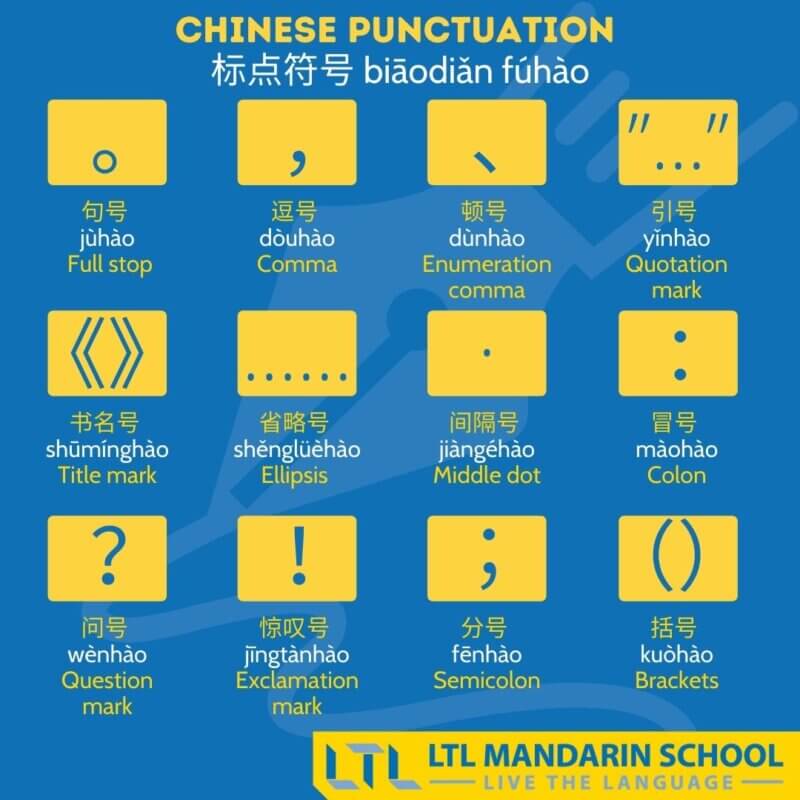
Chinese Punctuation || Brief Introduction and Vocab
Chinese punctuation can be grouped into punctuation marks which are basically the same as those used in the West and those that differ or are unique to Chinese.
Here are seven of the most common punctuation marks which are different in Chinese compared to the West, or have a specific Chinese usage.
| Punctuation Mark | English | Chinese | Pinyin |
|---|---|---|---|
| 。 | Full Stop | 句号 | jùhào |
| , | Comma | 逗号 | dòuhào |
| 、 | Enumeration comma | 顿号 | dùnhào |
| “ … ‘…’ … ” | Quotation mark | 引号 | yǐnhào |
| 《》 | Title mark | 书名号 | shūmínghào |
| …… | Ellipsis | 省略号 | shěnglüèhào |
| · | Middle dot | 间隔号 | jiàngéhào |
Along with those, there are five common punctuation marks which function in basically the same way as the West.
| Punctuation Mark | English | Chinese | Pinyin |
|---|---|---|---|
| : | Colon | 冒号 | màohào |
| ? | Question mark | 问号 | wènhào |
| ! | Exclamation mark | 惊叹号 | jīngtànhào |
| ; | Semicolon | 分号 | fēnhào |
| () | Brackets | 括号 | kuòhào |
Chinese Punctuation || Full Stop
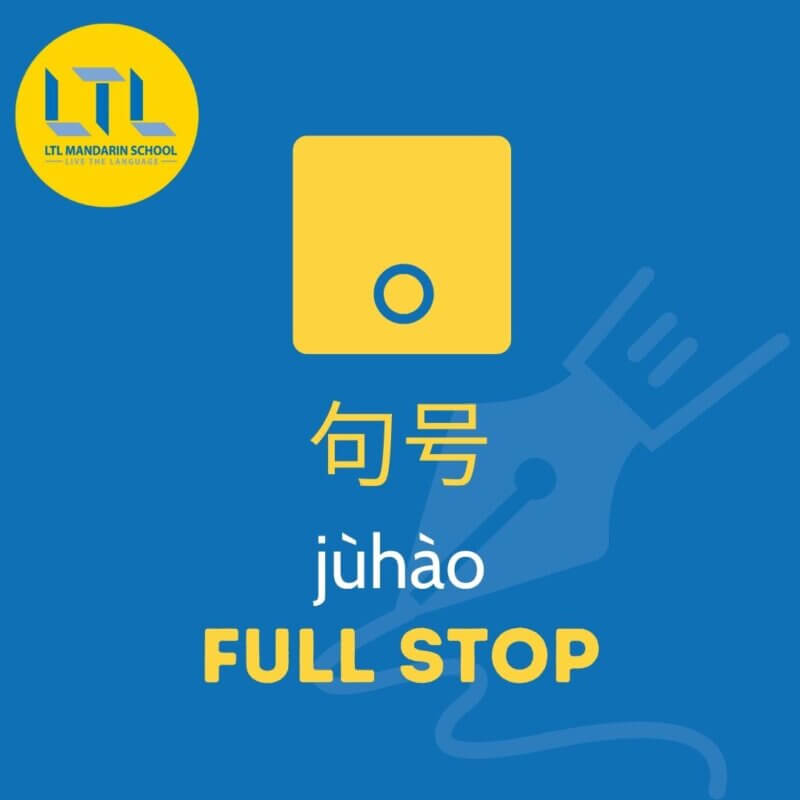
In Chinese a full stop (句号 jùhào) has the same function as it does in the West, however the shape is a bit different.
Rather than just a small dot a Chinese full stop is a full-width small circle which takes up the space of one Chinese character.
Like in the West full stops are used at the end of simple, complex or shortened sentences.
Example
请你帮我买一杯咖啡。Qǐng nǐ bāng wǒ mǎi yībēi kāfēi.
Please help me to buy a cup of coffee.
请坐。Qǐng zuò.
Please sit down.
Chinese Punctuation || Comma
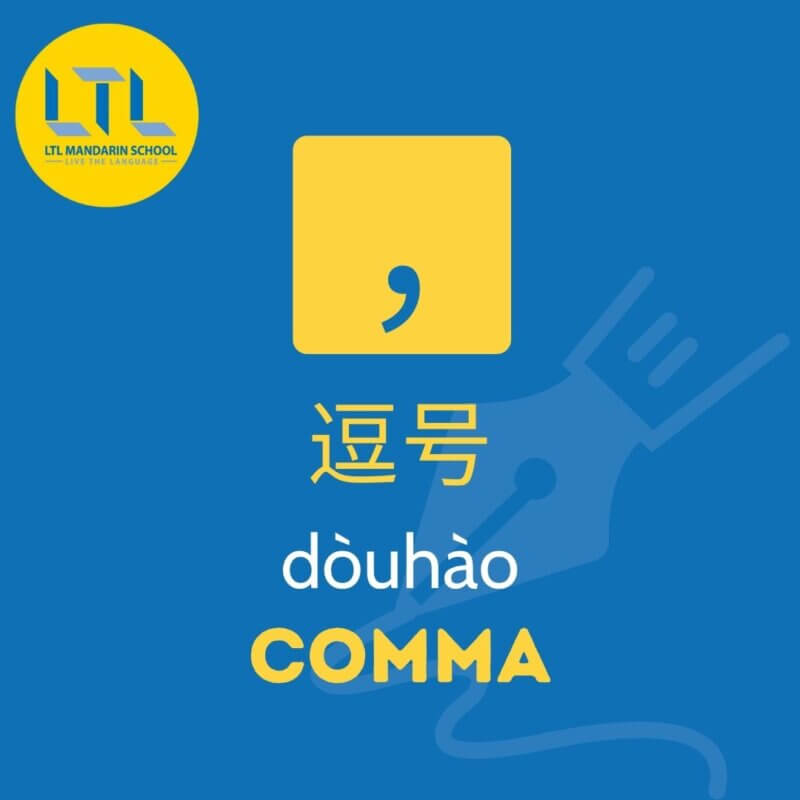
A comma (逗号 dòuhào) in Chinese is used to show pauses in a sentence or to separate clauses within a sentence, the same as it is in the West.
However, there is one important difference which is that commas can not be used for enumerating a list.
(There is a specific type of comma for this, see the next punctuation point.)
Example
如果下雨,我就不出门了。Rúguǒ xiàyǔ, wǒ jiù bù chūmén le.
If it’s raining, I won’t go out.
Chinese Punctuation || Enumeration Comma
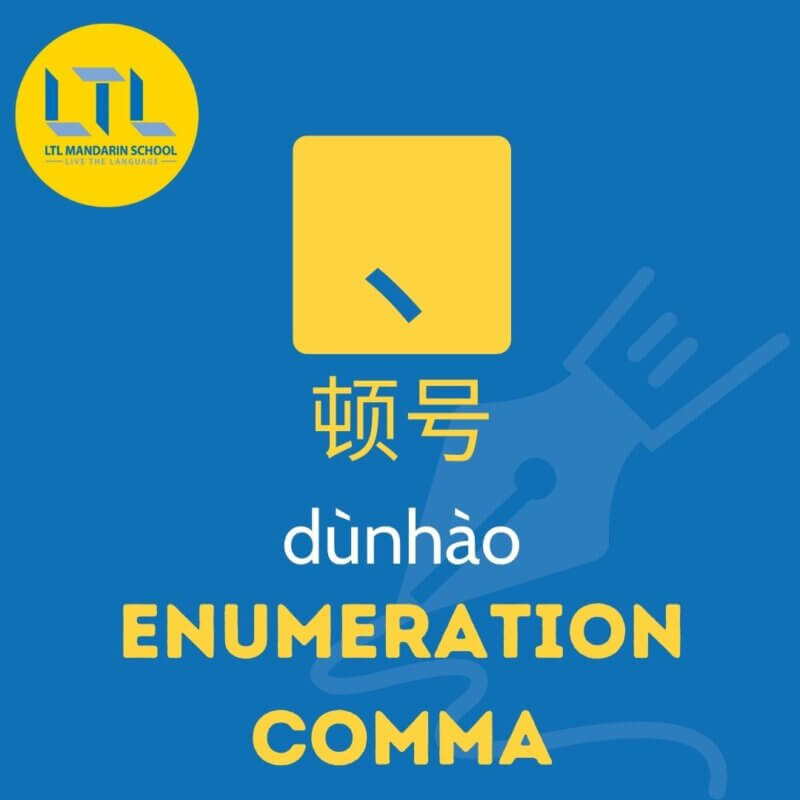
As we’ve already mentioned in Chinese you can’t use a normal comma when listing things in a sentence.
Instead there is a specific punctuation mark for this which is called the enumeration comma (顿号 dùnhào).
The enumeration comma is a short dash going from top left to bottom right. It is used to separate words constituting a list.
The listed items are usually in the same category, but not always.
Example
我喜欢芒果、梨子、桃子和草莓。Wǒ xǐhuān mángguǒ, lízi, táozi hé cǎoméi.
I like mangoes, pears, peaches and strawberries.
Chinese Punctuation || Quotation Mark
In simplified Chinese the same quotation marks (引号 yǐnhào) are used as those in English. When text is quoted within a quote it is shown like this: “… ‘…’ …”.
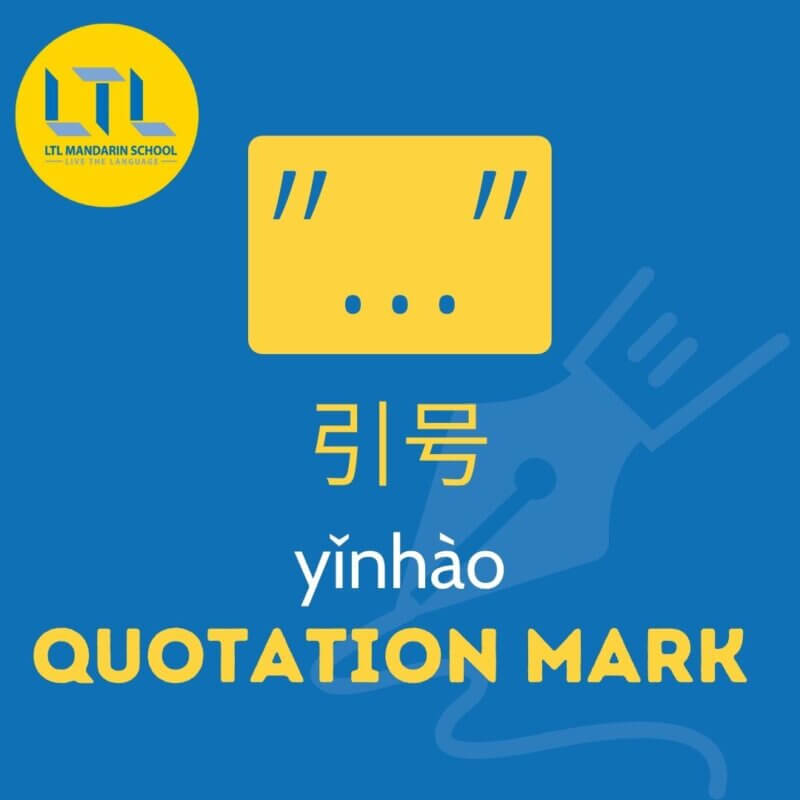
However, in traditional Chinese square brackets are used instead, which look like this: 「 」.
If text is then quoted within a quote then it appear like this: 「…『…』…」.
In Chinese quote marks can be used to show a quote, the name or title of something and to emphasize or to express satire (like air quotes in English).
Example
她问道,“妈妈,‘狮子’是什么意思?”。Tā wèn dào,“māmā,‘shīzi’ shì shénme yìsi?”
She asked, “Mum, what does ‘lion’ mean?”
Chinese Punctuation || Title Mark
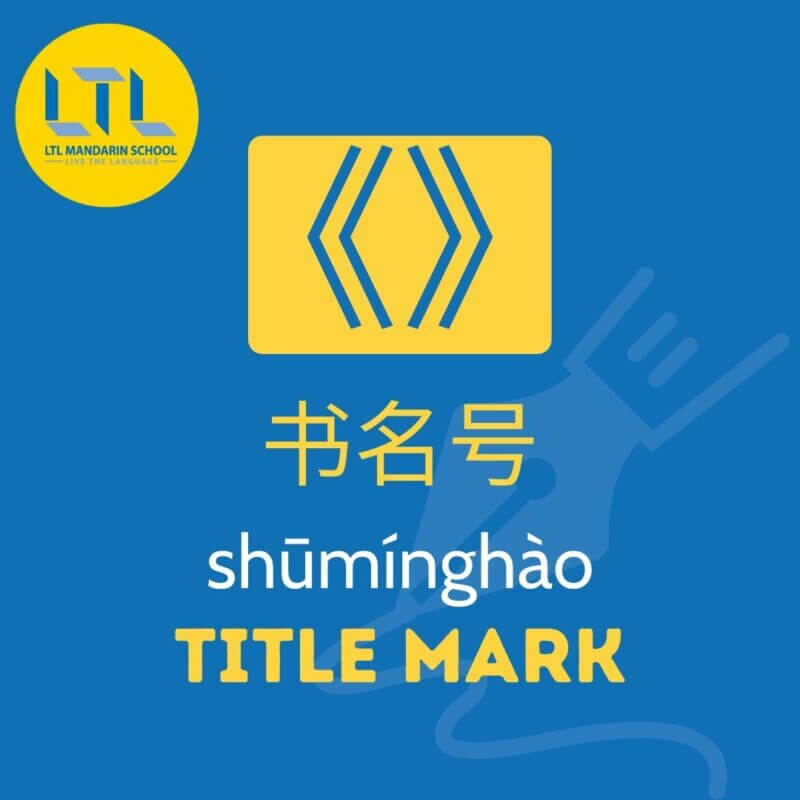
Title mark (书名号 shūmínghào) literally translates to “book name mark” so it should come as no surprise that it is used to indicate the names of books, films, songs, articles, magazines etc.
The marks《》are full-width double angle brackets and they are placed on the outside of titles. If another title is referenced within a title then <> is used.
Example
我很喜欢李安的电影《卧虎藏龙》Wǒ hěn xǐhuān lǐ ān dì diànyǐng “wò hǔ cáng lóng”
I really like Ang Lee’s film “Crouching Tiger Hidden Dragon“
《观< 别告诉她 >有感》 Guān “bié gàosù tā” yǒu gǎn
Film review of The Farewell
Chinese Punctuation || Ellipsis
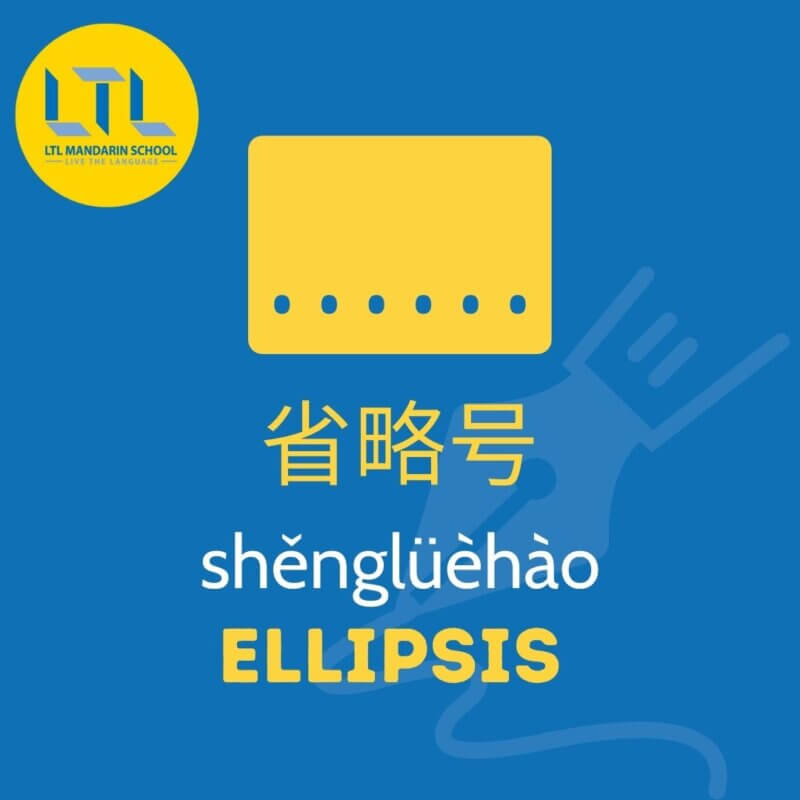
An ellipsis (省略号 shěnglüèhào) or known informally as “dot-dot-dot” has the same usage in Chinese punctuation as it does in English.
It is used to either show that something has been intentionally omitted or can be used to show a pause, hesitation or trailing off.
But the key difference with the Chinese ellipsis is that it has six dots, rather than the three used in English. This takes up the same space as two Chinese characters.
Example
我不知道……我不确定。Wǒ bù zhīdào……wǒ bù quèdìng.
I don’t know…I’m not sure.
Chinese Punctuation || Middle Dot
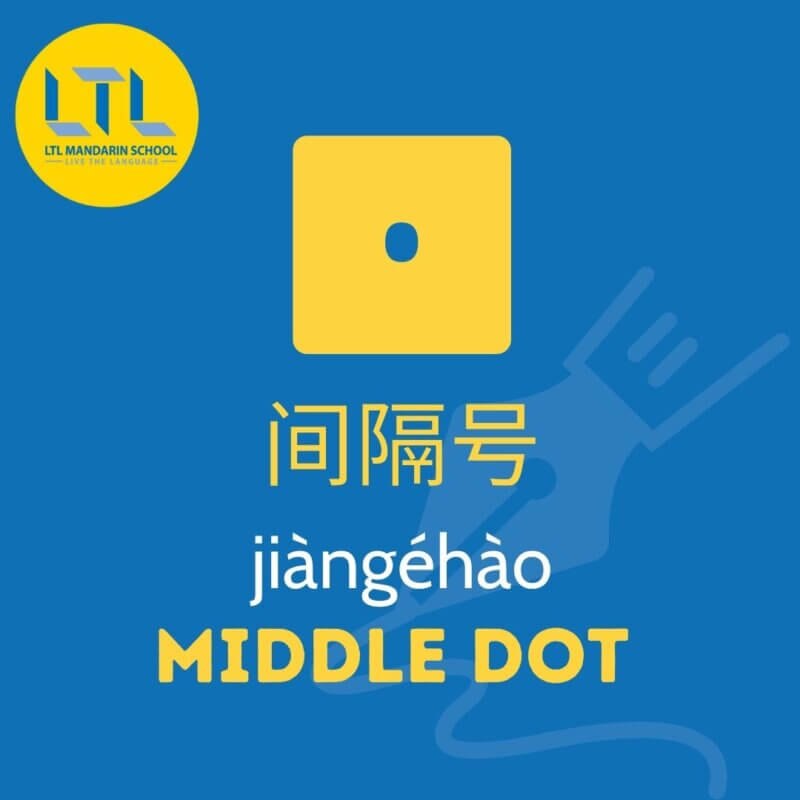
In Chinese a middle dot (间隔号 jiàngéhào) is used between foreign or minority names.
The dot is placed between first, middle and last names to indicate their separation.
You’ll most often see this used for foreign celebrities or foreign fictional characters that have had their names transliterated.
Example
哈利・波特 hālì bōtè
Harry Potter
在中国,凯蒂·佩里的绰号叫”水果姐” Zài zhōngguó, kǎi dì·pèi lǐ de chuò háo jiào”shuǐguǒ jiě”
In China, Katy Perry has the nickname “Fruit Sister”
Chinese Punctuation || Five Similar to the West
The following five Chinese punctuation marks have basically the same usage as they do in the West.
In Chinese, question marks, exclamation marks, colons, semicolons and brackets can simply be used in the same way that you would in English.
- Question mark (问号 wènhào)
- 她是什么时候结的婚?Tā shì shénme shíhou jié de hūn?
When did she get married?
- 她是什么时候结的婚?Tā shì shénme shíhou jié de hūn?
- Exclamation mark (惊叹号 jīngtànhào)
- 今天天气真好啊!Jīntiān tiānqì zhēn hǎo a.
What a lovely day today!
- 今天天气真好啊!Jīntiān tiānqì zhēn hǎo a.
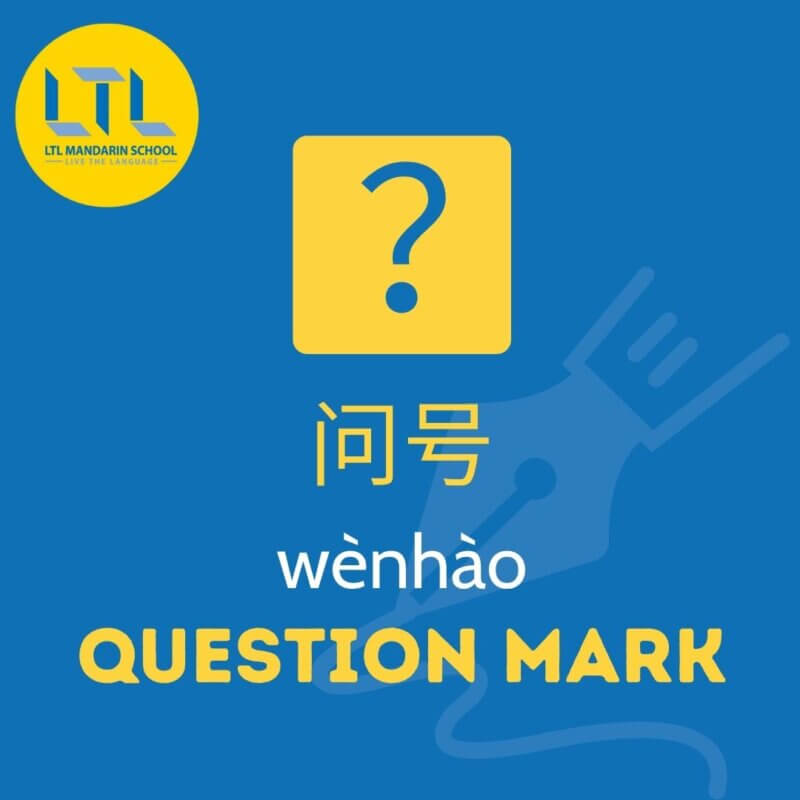
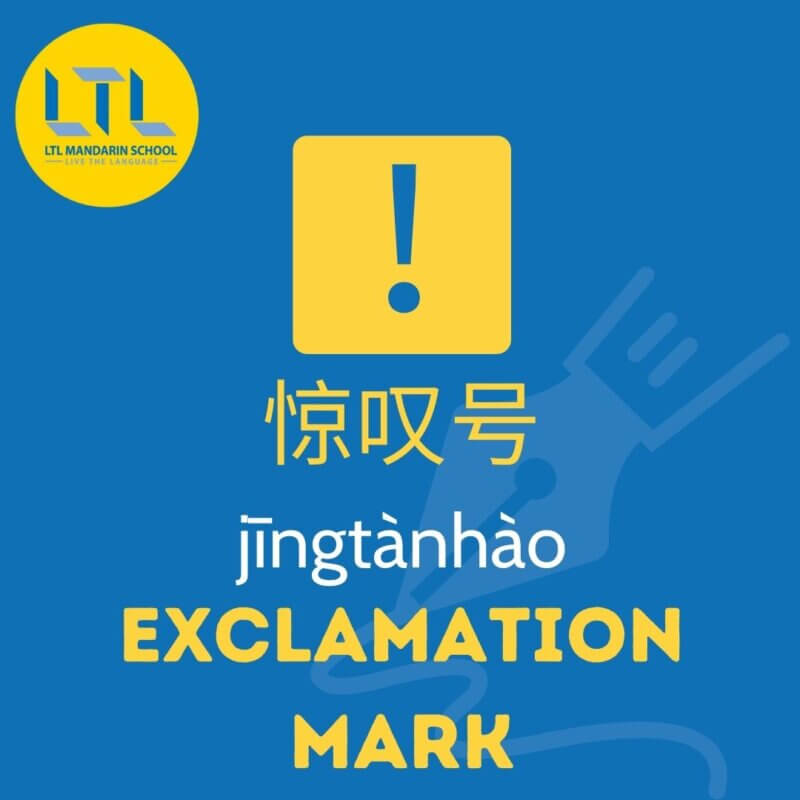
- Colon (冒号 màohào)
- 他高兴地答道:“没问题!” Tā gāoxìng de dá dào:“Méi wèntí!”
He answered happily: “No problem!”
- 他高兴地答道:“没问题!” Tā gāoxìng de dá dào:“Méi wèntí!”
- Semicolon (分号 fēnhào)
- 早上起来,外面下了一场大雨;到了中午,天气却突然放晴了。Zǎoshang qǐlái, wàimiàn xiàle yī chǎng dàyǔ; dàole zhōngwǔ, tiānqì què túrán fàngqíngle.
When I got up in the morning, it was raining hard outside, but by noon, it suddenly became sunny.
- 早上起来,外面下了一场大雨;到了中午,天气却突然放晴了。Zǎoshang qǐlái, wàimiàn xiàle yī chǎng dàyǔ; dàole zhōngwǔ, tiānqì què túrán fàngqíngle.
- Brackets (括号 kuòhào)
- 今天是中国新年 (农历一月一日)。Jīntiān shì zhōngguó xīnnián (nónglì yī yuè yī rì).
Today is Chinese New Year (Lunar calendar January first).
- 今天是中国新年 (农历一月一日)。Jīntiān shì zhōngguó xīnnián (nónglì yī yuè yī rì).
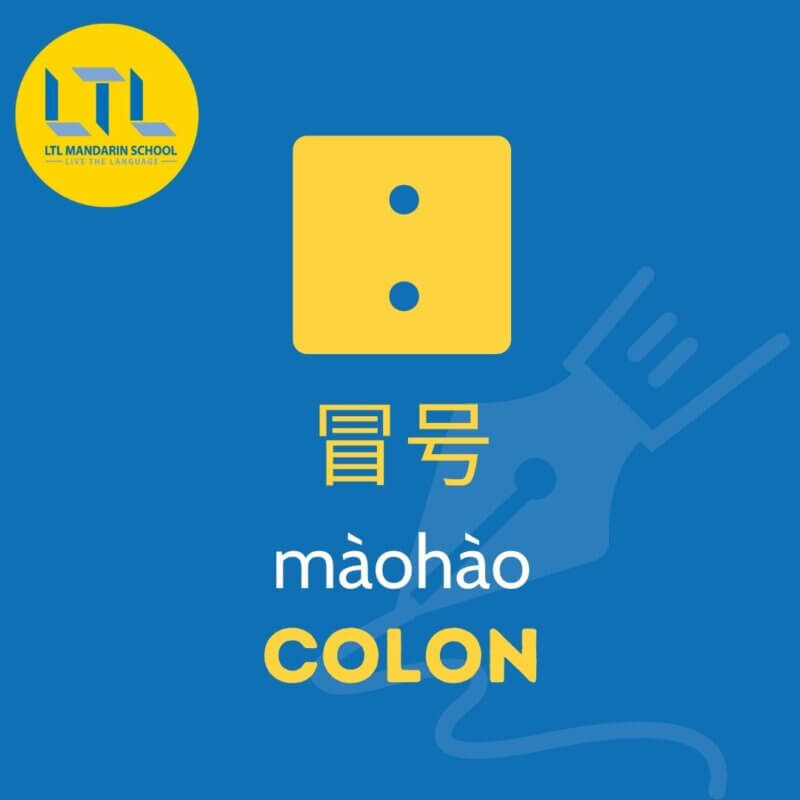
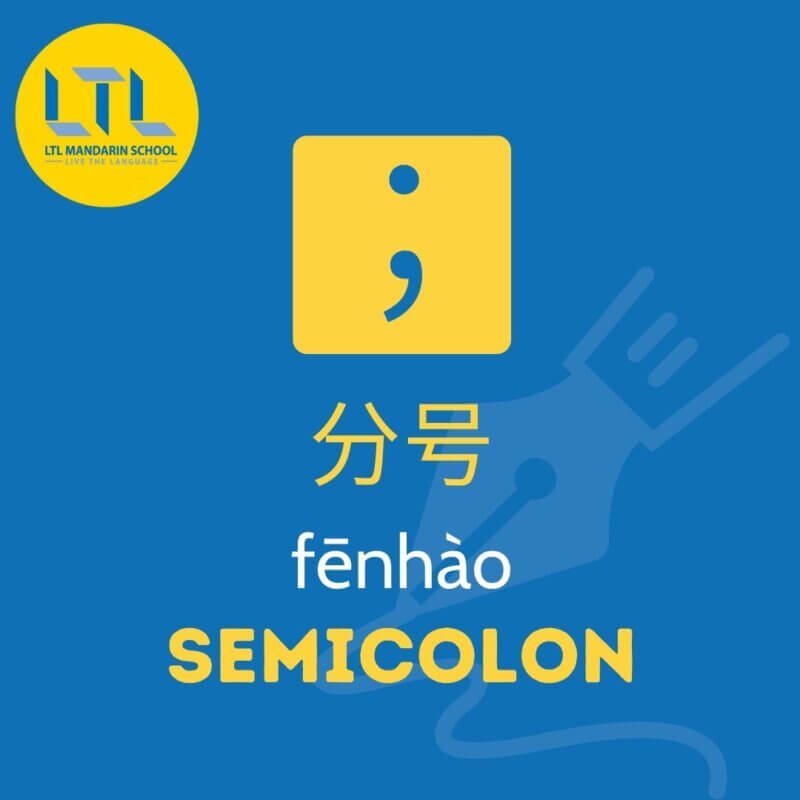
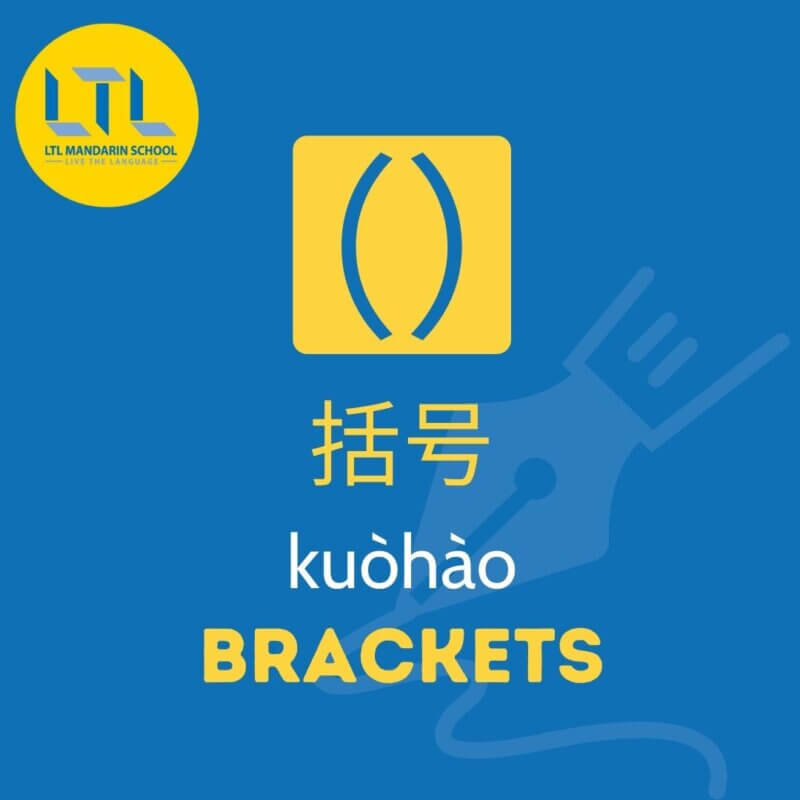
Chinese Punctuation || Quiz
Now that we have looked at the 12 most common Chinese punctuation marks, why not put yourself to the test?
Take the quiz below to see if you can remember the Chinese names for all the punctuation marks we’ve looked at!
Chinese Punctuation || FAQs
Is there punctuation in Chinese?
Yes, there is punctuation in Chinese. Some Chinese punctuation is used in the same way as it is in English/the West, however some is unique to Chinese.
Do you use question marks in Chinese?
Yes, question marks are used in Chinese and their usage is very similar to that in the West.
What is the Chinese enumeration comma?
The Chinese enumeration comma is a comma unique to Chinese which is used to separate items when listing them. A normal comma can not be used in this way in Chinese.
What is full stop in Chinese?
Full stop in Chinese is 句号 jùhào.
Want more from LTL?
If you wish to hear more from LTL Mandarin School why not join our mailing list.
We give plenty of handy information on learning Chinese, useful apps to learn the language and everything going on at our LTL schools!
Sign up below and become part of our ever-growing community!
BONUS | Want to study the local dialect known as Shanghainese? We provide Shanghainese Classes in person and online.

 Hi, my name is Mojca. I am from Slovenia in Europe and I and I work as a student advisor at our Shanghai school.
Hi, my name is Mojca. I am from Slovenia in Europe and I and I work as a student advisor at our Shanghai school.
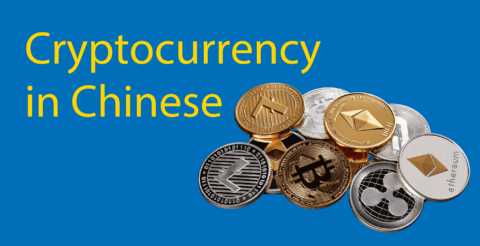
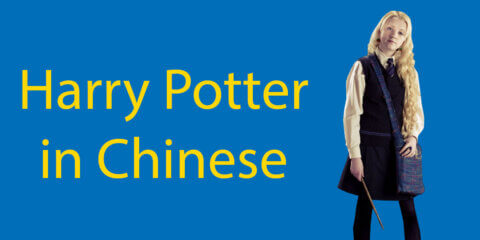


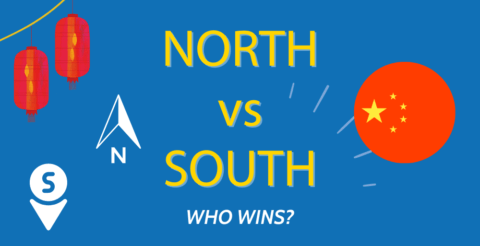
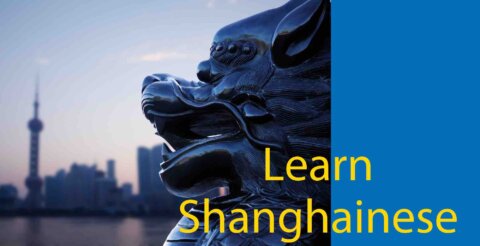
1 comments
[…] Related link: https://ltl-shanghai.com/chinese-punctuation/ […]